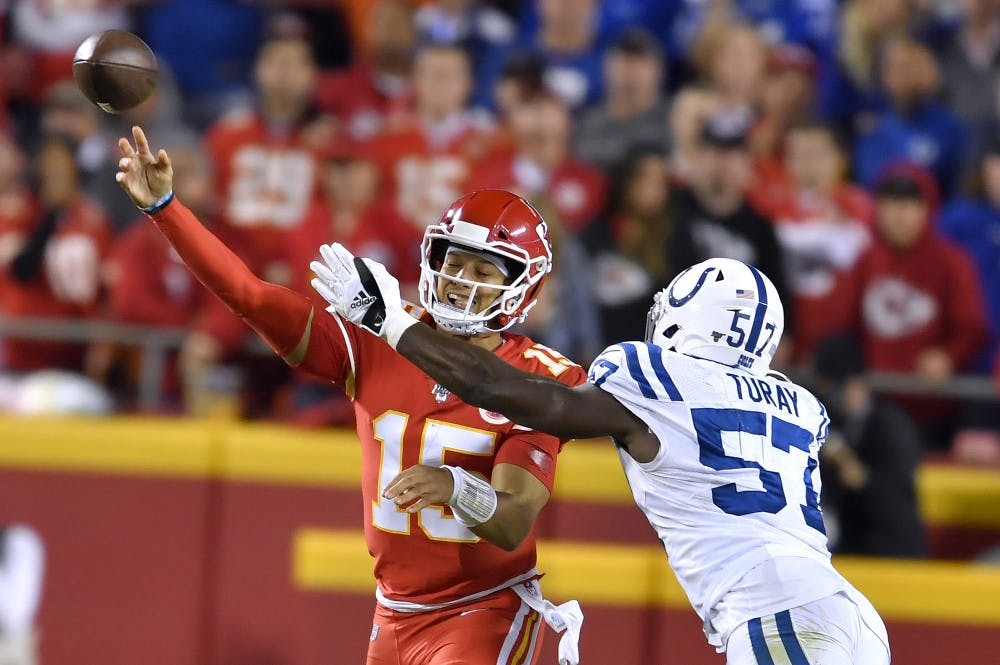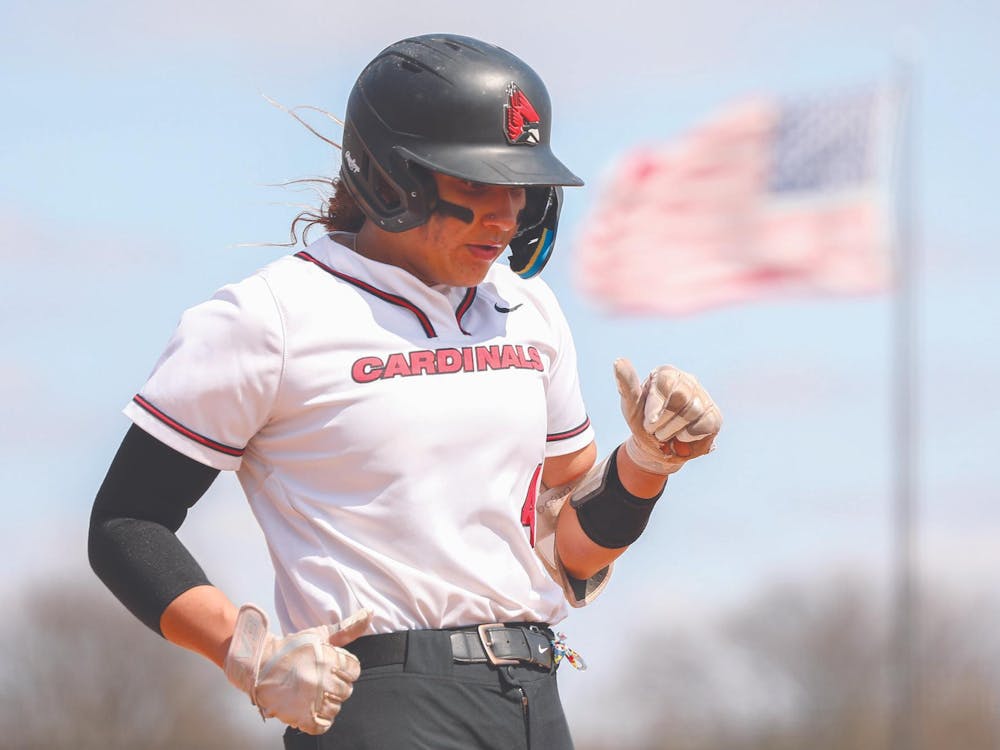Daniel Kehn is a freshman journalism and telecommunications news major and writes for the The Daily News. His views do not necessarily reflect those of the newspaper.
Monday Night Football — a nationally televised game — the Pittsburgh Steelers against the Chicago Bears Nov. 8. Pittsburgh spent most of the game leading, but Chicago’s intimidating defense refused to give up and helped the Bears hang around.
With three minutes and 40 seconds left in the fourth quarter, Pittsburgh led 23-20 and faced a third down with eight yards to go. The Bears’ defense struck a late-game blow in the form of outside linebacker Cassius Marsch, who sacked Steelers quarterback Ben Roethlisberger on Pittsburgh’s 47-yard line, effectively ending the Steelers drive.
Bears quarterback Justin Fields would have a shot at a comeback victory on the road, but had to wait — there was a flag thrown after the conclusion of the play for taunting. National Football League (NFL) referees have been instructed to place more attention and emphasis on taunting in the 2021 season.
After completing the sack, Marsch celebrated with a flying kick in the air, before staring down the Steelers bench. The flying kick was not the problem, Marsch’s stare down of the opposing bench drew the taunting call.
Marsch’s supposed taunt resulted in a 15-yard penalty, giving Pittsburgh a fresh set of downs. The Steelers used this opportunity to convert a 52-yard field goal to extend their lead to 26-20 with just under three minutes left in regulation.
Without the taunting call, the Bears would have the football around their 20-yard line, only be down three points and have ample time to win or tie the game — wiping off Marsch’s sack made any comeback unlikely and led to a Steelers 29-27 win.
This instance is not isolated though.
Since the NFL announced officiating crews would be placing an emphasis on taunting, 27 taunting calls have been made, resulting in 359 penalty yards according to nflpenalties.com. Its more calls and penalty yards than the last two seasons combined (18 calls for 223 penalty yards in 2019 and 2020).
Somehow, NFL Commissioner Roger Goodell thought it was a spectacular idea to bring back the taunting call.
Goodell, who played only played competitive football in high school, entered the league as an administrative intern, not as a player.
Maybe Goodell’s high school football career was played in a different era of football, or maybe he just doesn’t understand the sport as much as he should, but penalizing a player for celebrating an important play is only hindering the sport fans love so dearly.

One could understand the act of taunting is unsportsmanlike and many would agree — but the way that the NFL is choosing to define taunting is senseless.
When the Kansas City Chiefs and Tampa Bay Buccaneers met in Super Bowl LV Feb. 7, Buccaners free safety Antione Winfield Jr. flashed a two-fingered peace sign in the face of Chiefs wide receiver Tyreek Hill after stopping Hill from catching a pass.
The peace sign is a signature celebration for Hill. This situation is taunting, hands down, no question. It is unsportsmanlike and was correctly called. However, far lesser actions are being viewed as taunting this season.
When Marsch stood more than 20-yards away from the Steelers bench and stared them down, he did not utter a word or make a signal. He just stared.
At most, Marsch was drawing a line in the sand to his opponents, an act many former players would label as respect for the game. At the least, Marsch was celebrating a big play. Are officials going to tell players they can’t celebrate their moments anymore?
Even if Marsch was taunting his opponents, who cares? Showboating, celebrating, trash-talking and taunting all have their place in sport and it only breads better competition — just ask the likes of Muhammad Ali, Connor McGregor or the NFL's Hall of Fame trash talkers Shannon Sharpe and Chad ‘Ochocinco’ Johnson.
Gamesmanship is an integral part of the sport and plays a huge role in keeping the spirit of the game alive. When players are no longer allowed to be exuberant on the field, their love for the game begins to die.
NFL players across the league, including Marsch himself, have been outspoken about the taunting calls this season, harping continuously the insanity of the situation.
“It’s taking the fun out of the game,” Minnesota Vikings wide receiver Adam Theilen said.
From a fan perspective, this call is ruining the game. No fan wants to watch their favorite player make a big play only to reset like a robot and line back up for the next play. Fans come to see superstars express passion and emotion for the love of football. If the NFL decides this is the direction the sport is taking in the future, fan and player interest will dry up, leaving only flags on the field and officials who can't appreciate the sport.
Indeed, the good ole’ No Fun League is back. Thanks, Roger.
Contact Daniel Kehn with comments at daniel.kehn@bsu.edu or on Twitter@daniel_kehn.





